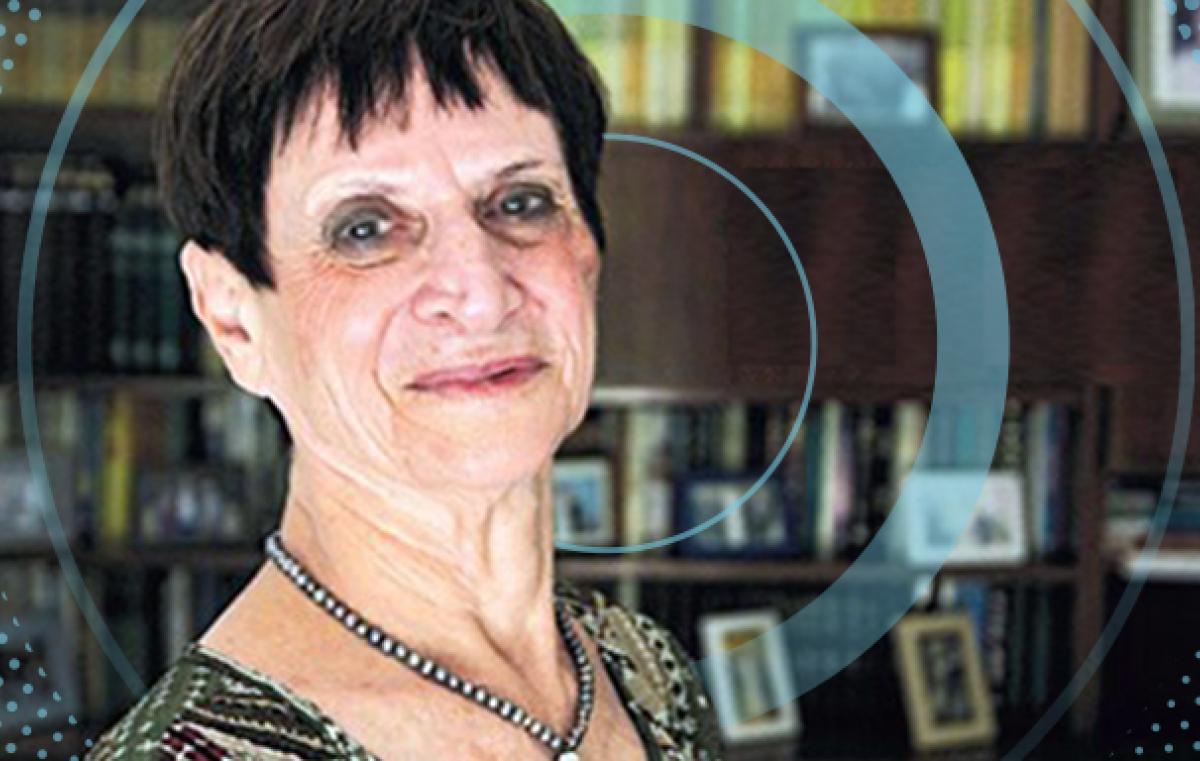Meet Lea Barak
is a member of Bar-Ilan University’s third graduating class. Today, at nearly 80, she continues to be active and imbued with a creative muse.

Israeli author, lecturer and educator, Lea Barak, of Raanana, is a member of Bar-Ilan University’s third graduating class. Today, at nearly 80, she continues to be active and imbued with a creative muse. Her latest novel “At the Last Moment” deals with the Yemenite Children Affair and was published amid renewed interest in the fate of Yemenite immigrant children separated from their parents in the early years (1948-1954) of the State of Israel, in circumstances that have yet to be made public.
Lea completed her undergraduate studies in Hebrew literature and Bible at BIU in 1961, and immediately found employment as a teacher of these subjects. Later, she served as principal at AMIT schools in Tel Aviv and Raanana, where she worked until her retirement. During those years she also pursued a MA degree in literature at BIU, while supervising students in the university’s Teacher Education Program and guiding teachers in family life education.
“My Bar-Ilan academic experience was one of the most memorable periods of my life,” recounts Lea. “I had just graduated from an Ultra-Orthodox high school for girls in Ramat Gan, and so it was obvious that I would study at Bar-Ilan – then a newly-established religious university. My academic studies broadened my horizons, enabling me to better understand culture, literature and philosophy.” Lea studied with a number of mythological scholars, including “Prof. Baruch Kurzweil, who roused my literary curiosity and exposed me to new worlds, especially in understanding S.Y. Agnon and in reading classical works in world literature; Prof. Nechama Leibowitz, who insisted that we call her ‘Nechama’ and provided me with tools to understand the traditional commentaries; Prof. Meir Weiss, who gave me literary tools for reading the Bible; and Prof. Yehuda Elitzur, whose historical-archaeological approach in understanding the Bible accompanies me to this day.”
Today, Lea devotes most of her time to writing. She has published short stories in literary additions and journals, and three novels, “After the Guests Leave,” “Through the Window,” and “The Last Moment.” The former novels reflect life in the southern Tel Aviv neighborhood where she grew up, and the latter follows a literature teacher and school custodian who are connected to the Yemenite Children’s Affair. Lea, who is of Polish extract and grew up in a religious Zionist home, has often been asked what led her to write about the Yemenite children. In media interviews, she replied: “This issue crosses ethnic barriers and I could not ignore it. Everyone feels the terrible pain of separating children and babies from their parents. With all the roles that I have filled in my life, I am, first and foremost, a mother, and motherhood is the deepest and most dominant emotion.”
As to Bar-Ilan University, she says, “I have no doubt that my Bar-Ilan studies shaped my cultural world, enriched me and afforded me with energy that has empowered me to this day.”